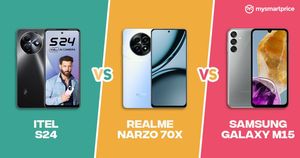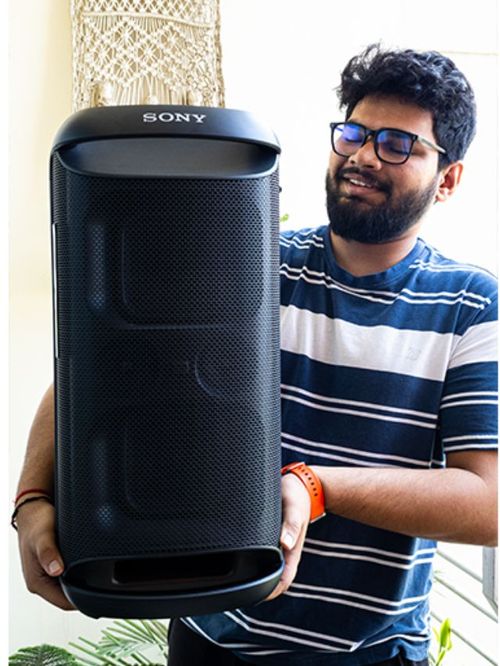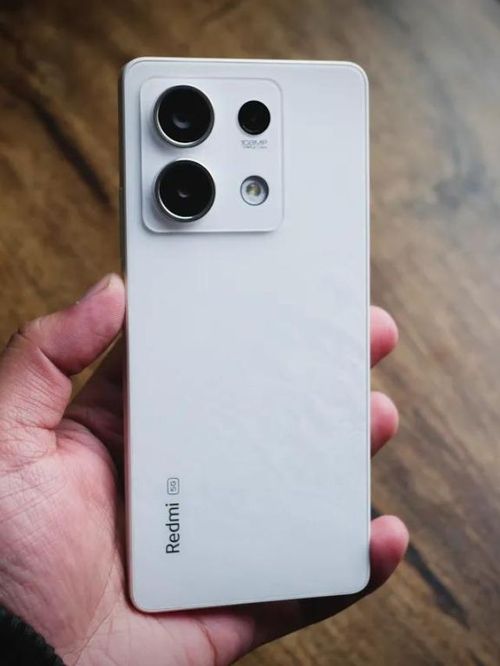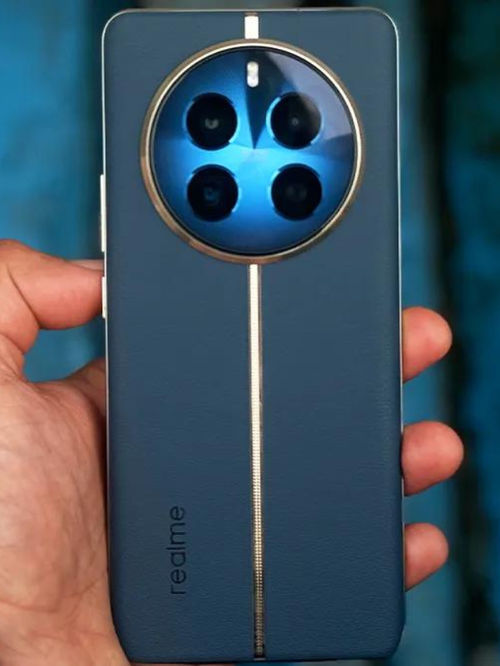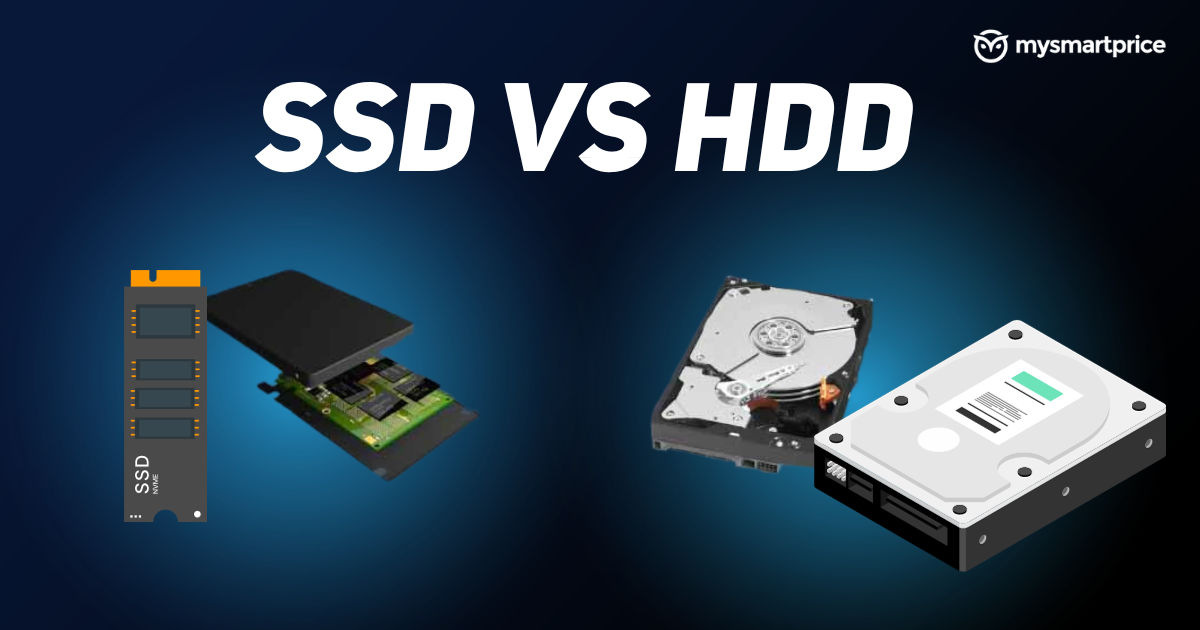
Solid State Drives (SSDs) are the latest storage technology that’s increasingly replacing the older Hard Disk Drives (HDD). Even though both storages serve the same purpose, one is much more advanced. In this article, let us talk in detail about SSDs and HDDs and examine which is faster, better, more reliable, cheaper, and more!
SSD vs HDD
| Feature | SSD | HDD |
| Speed | Faster | Slower |
| Reliability | More reliable | Less reliable |
| Power consumption | Consumes less power | Consumes more power |
| Storage capacity | Lower capacity | Higher capacity |
| Price | More expensive | Less expensive |
What is a Hard Disk (HDD)?
A Hard Disk (HDD) is a storage device that stores data on a rapidly rotating disk or platter coated with ferromagnetic material. The data is read using a magnetic head that reads and writes data to the platter. The direction of magnetization represents individual bits – 1 or 0.
HDD can read data in a random access manner, which means you can access any data in any order. The device is also non-volatile, meaning it can store data even when power is down. This makes the HDD great for long-term storage of huge amounts of data.
It was first introduced in 1956, and Hard Disks have remained the primary computer storage devices ever since. This has made HDDs very cost-efficient over the years compared to SSDs.
Pros
- Faster speeds
- Better performance
- Reliable
- Durable
- Compact
- Energy efficient
Cons
- More expensive than HDDs
What is a Solid State Drive (SSD)?
SSD, or solid-state drive, is a storage drive that uses integrated circuits to store data. It uses a flash memory to save information. SSDs don’t have moving parts like HDDs; they store data in semiconductor cells and are non-volatile. SSDs are much faster than HDDs, as it doesn’t need a moving actuator arm like HDD to read data. This means if you’re using SSD for internal storage, you can get better performance, booting speed, and overall better performance. Also, this means the SSDs are much more susceptible to mechanical failure and more durable. SSDs come in various interfaces such as SATA, NVMe, M.2, mSATA, and more.
Pros
- Cost-effective
Cons
- Lower speeds
- Power hungry
- Not shockproof
SSD vs HDD: What Are The Differences?
The difference between SSDs and HDDs is in the way they are made. HDDs have a spinning ferromagnetic disk that stores the data and uses an actuator arm that reads or writes data on the spinning disk.
SSDs don’t come with moving parts; they store data in semiconductor cells, called flash memory. There are no moving parts, which means data can be read faster and less prone to mechanical failure.
SSD vs HDD: Which Is Faster?
SSDs are faster, and using SSDs instead of HDDs can make your PC or laptop much faster.
SSDs are much more faster than HDDs because of their inherent design. Unlike HDDs, SSDs don’t come with any moving parts; reading and writing of the data are much faster as it doesn’t involve any spinning disk.
Thanks to the NVMe standard, developed by Intel, Sandisk, and more, SSDs can use multiple channels to read and write simultaneously, compared to being limited to one channel supported by the older SATA standard.
An average HDD can read and write typically at 80MB/s to 160MB/s, while the newer NVMe SSDs can read speeds of 3,500MB/s or more.
So SSDs are much faster, and using an SSD as the primary disk in your computer alone can make it much faster than it was on an HDD.
SSD vs HDD: Which Is Better For Gaming?
As we mentioned earlier, SSDs are much faster than HDDs. This translates to better performance in PCs, and SSDs are the better choice for gaming.
In fact, newer games such as Starfield, Forza Motorsport, and Cyberpunk 2077: Phantom Liberty require you to have SSD as the minimum requirement, with Phantom Liberty even requiring NVMe SSDs for Ultra settings.
More and more games are making SSDs a minimum requirement, meaning these games will not start from an HDD. These games are more resource-intensive than ever, and if you want to be future-proof, you should invest in SSD storage for your PC.
SSD vs HDD: Which Is More Reliable?
SSDs, without having any moving parts, are more reliable. With no mechanical moving parts, SSDs are also shockproof. Moving parts are susceptible to wear and tear and will get slower over time and even fail.
In an internal study from Backblaze, a cloud service provider, SSDs were found to be more reliable. Over the first four years of service, SSDs have an annual failure rate of 0.58%, while the same for HDDs was 10.56%.
But in the long run, HDD would stand the test of time, as compared to SSDs, HDD comes with higher read-write cycles.
SSD vs HDD: Which Is More Secure?
SSDs are more secure than HDDs. SSDs come with hardware-based encryption, while HDDs support software-based encryption tools. You should go with SSDs if you want a more secure storage option. However, that does not mean HDDs are less secure. It also offers good protection, just that SSDs have it better.
SSD vs HDD: Which Is Cheaper?
HDDs are cheaper than SSDs.
A 1TB internal HDD from Seagate costs around Rs 3,500 on Amazon, while a 1TB NVMe SSD from Samsung costs around Rs 5,00.
The price of SSDs has come down over the years, but it is still pricier than HDDs, and we can hope SSDs will get even cheaper in the future. HDDs have been available since the inception of computers, and it’s one of the reasons it is cheaper than SSDs.
Which is better – SSD or HDD?
SSDs and HDDs offer a different set of features.
SSDs are faster and cost more; HDDs cost less but are slower.
If you want better performance on your PC or laptop, you should choose an SSD. You can go with an HDD if you have more data to store. It will be slower, but cheaper to buy.
But if you’ll get only one drive for your PC, you should get an SSD. It will not only make your file transfer faster; it will make your computer much faster!
Why SSDs are Better For Laptops?
SSDs are better than HDDs for laptops because:
- Faster performance – SSDs offer better performance in laptops.
- Thin & Lightweight – SSDs are light and thin, making them better for laptops.
- Energy efficient – Because of no moving parts, SSDs consume less power.
- Durable – SSDs are more durable than HDDs because of no moving parts.
Who Are SSDs Best For?
SSDs are best for users who want the best performance out of their laptops and computers. Users such as:
- Gamers – Gamers need the best performance, and SSDs are the best.
- Content creators – Content creators need the best performance to make, edit, and export videos and photos.
- Developers – SSD can improve the performance of Visual Studio Code, Dreamweaver, and more.
- Businesses – SSDs can save loads of time for businesses by booting the computers
- Travelers – SSDs are durable and shockproof, so it is better for travelers.
Who Are HDDs Best For?
HDDs are better for users who want to store more data and are budget-conscious. Users such as:
- Photographers – Cheap HDDs with more storage can give all the space photographers want to store their data.
- Budget-conscious users – HDDs are cheaper than SSDs, and HDDs are a good option for users who want more storage and don’t mind sacrificing performance.
How To Get The Best Out of Two?
You need to use both in a single PC to get the best out of SSDs and HDDs. You can use the SSD, presumably a lower storage SSD, as the primary boot drive for your computer while using the higher capacity HDD as a mass storage drive.
In this way, you can get great speeds and performance while also having lots of storage to spare in HDD.
FAQs
Is a 256GB SSD better than a 1TB hard drive?
If you want better speeds and performance and don’t care much about the storage space, you should get 256GB SSD. But getting the 1TB HDD is the right option if you want more storage.
Which lasts longer? SSD or HDD?
SSDs are more durable and reliable, and SSDs would last longer than HDDs.
Is SSD more safe than HDD?
SSDs, with their hardware-based encryption, are more secure than HDDs, which don’t have it.
Is an SSD slower than an HDD?
No, it’s the opposite; SSD is faster than SSD.
Can I replace the HDD with an SSD?
Yes, you can replace the HDD on your computer with an SSD if the motherboard in your computer supports it.
Is SSD necessary for a laptop?
SSDs have become a more and more necessity in laptops as SSDs offer faster performance, use less power, and make the laptops thin and light.
Is it OK to use only SSD?
Yes, using only an SSD on your PC or laptop is ideal.




